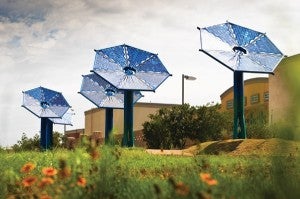By: Marita Mirzatuny and Kate Zerrenner
When the U.S. military calls climate change a “threat multiplier” and “a serious threat to national security,” it makes anyone stand up and pay attention. From direct land impacts and food and water shortages, to the displacement of millions of people, climate change is not taken lightly by our armed forces.
Earlier this week, two military experts, Lt. Gen. Ken Eickmann (USAF, Ret.) and British Rear Admiral Neil Morisetti (Royal Navy, Ret.), testified at a Texas House International Trade & Intergovernmental Affairs Committee Hearing and later at an event hosted by the Robert S. Strauss Center for International Security and Law and the British Consulate-General University at University of Texas’ LBJ School. As a senior research fellow at the University of Texas at Austin’s Energy Institute and Former UK Foreign Secretary Special Representative for Climate Change, Eickmann and Morisetti, respectively, bring a level of trust and confidence to this issue, disarming the politics, if just for a moment, and replacing it with pragmatic duty.
Eickmann and Morisetti’s message was loud and clear: We need to diversify our energy options and shift more toward a clean energy economy. The potential for Texas is boundless. Read More





